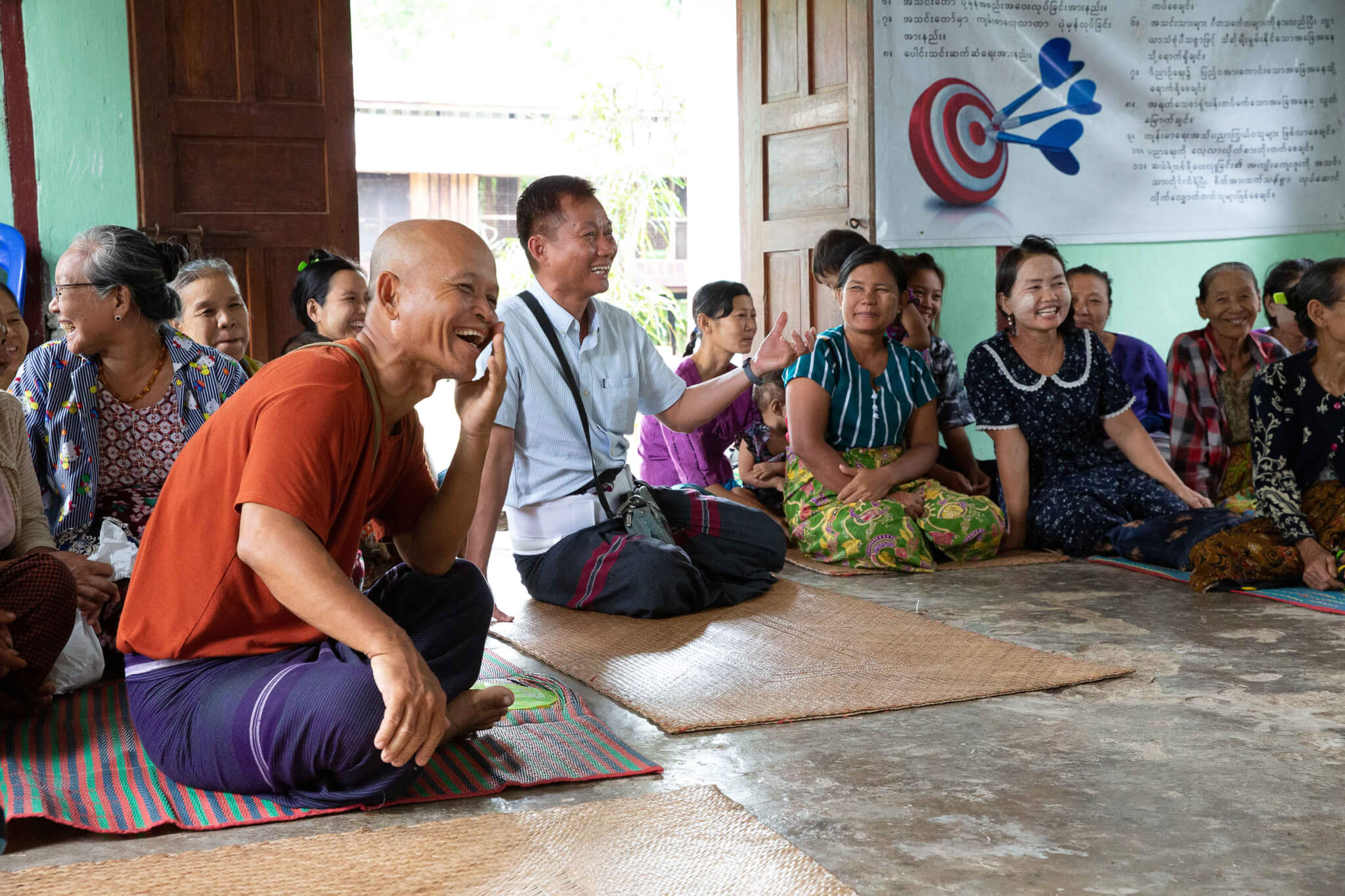Paul smiled broadly. “We want to grow spiritually and physically inside our church and in unity with our community,” he said. “We want to share our blessings by working together with our neighbours.”
Witnessing local transformation
As we sat on rush mats in a rural church in Myanmar, evidence of the growth and transformation Paul spoke of was all around us. A community hall was well underway next door, close to the newly-started guest house, and a concrete footpath to the road was being laid, the usefulness of which was abundantly clear on this rainy day. Even more impressive, though – and moving – were the joyful faces and lively testimonies of the congregation as they enthusiastically told us about their journey into asset-based church and community transformation.
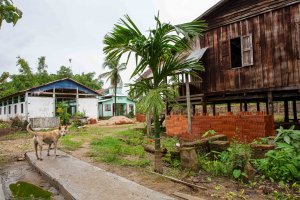
The church, hall and new path
Paul is the facilitator in this process, known locally as the Church and Community Mobilisation Process, for his church. “We started with Bible study. Then we realised that through the Bible we can live our lives and overcome our problems,” he explained. “One family gave the money in thanksgiving and we organised twenty people to help build the footpath together.”
This rich encounter took place on a day of field visits during the recent consultation on Asset-Based Church and Community Transformation, which the Anglican Alliance held in Myanmar for churches from across Asia. Thirty-six participants from India, Bangladesh, Nepal, the Philippines, Malaysia, Cambodia, Sri Lanka, Myanmar, as well as Australia and the UK, gathered in Yangon to share their experiences of transforming lives in local churches and communities.
There are many different approaches which broadly share the same principles – being inspired by Bible study and based on local assets and talents – but have their own distinctive aspects. The aim of the consultation was to learn from each other and see how these approaches are shaped by their unique context.
The consultation was organised by the Anglican Alliance, in partnership with Tearfund, along with Episcopal Relief & Development and the Anglican Board of Mission, Australia. It was hosted by the Church of the Province of Myanmar.
The Road to Yangon
The consultation followed a study tour to Philippines in 2017 in which Anglican delegates from across Asia and the Pacific and some from Africa visited the Episcopal Church of the Philippines to learn about their approach to Asset-Based Community Development. In the Philippines, the group experienced E-CARE’s inspirational ‘Receivers to Givers’ approach. Through this, local communities use a grant to build their livelihoods and then save to pass the grant forward to bless another community. The study tour participants requested that the Anglican Alliance follow up with a consultation to learn and share from each other in the Asia region, given the rich variety of approaches to transformation in local churches and communities.
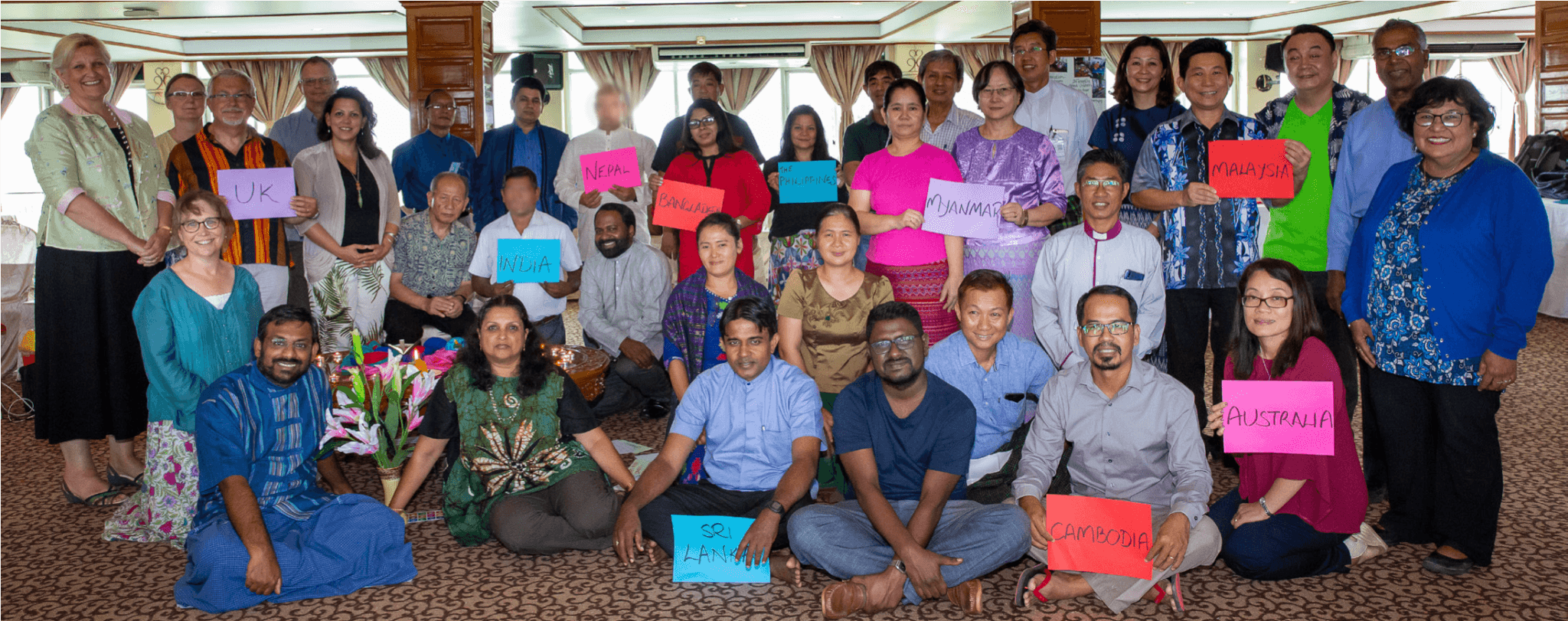
Participants gathered from across Asia
Learning together
Bible study underpinned the group’s time together. The first was on Luke 24:13 -35, the Road to Emmaus, which provided insight on sharing a journey of learning and mutual inspiration.
As the group worked together, they identified the common principles which underlie all their work:
- Church and community transformation is not a project but rather a process leading to a mindset change towards recognising the community’s own gifts and assets.
- Church members are inspired through biblical reflection to embrace whole-life discipleship.
- The church and community work together for the common good.
- It is facilitated, not taught, through participatory methods.
- It breaks a dependency mentality, building self-reliance through mobilising local resources.
- It needs to be adapted to the local context.
This family of approaches is about deep transformation. As one church leader has said: “The process told us we cannot wait for someone to come. We are to be salt and light in the world … and it helped us to understand that we had many resources to help ourselves.” (Pastor Ezra, Uganda)
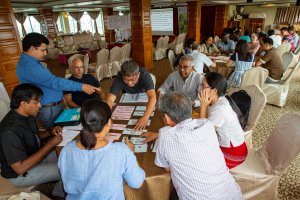
Sharing ideas and experience
The participants in Myanmar concluded that the various approaches used by churches in Asia have most attributes in common, although the detailed case studies also showed some distinctive elements – such as the Philippines’ ‘Receivers to Givers’ concept.
As one participant said: “For me, calling something ABCD or CCT is not that important – but just doing something that brings a whole-life transformation to the church and community is.”
Meanwhile, back in Paul’s church, an elderly lady said: “For a long time I have prayed for paving on our road as I am old and the muddy road is difficult. Then one member put in resources and the rest of the community contributed. You have to trust God. Change will come at the right time.”
Revd. Rachel Carnegie, Anglican Alliance Executive Director, said: “This was a very inspiring meeting. It was wonderful to be in Myanmar, where the Church has fine examples of transformation in local churches and communities. People gathered from across Asia to share their stories and expertise. Despite the different contexts, participants discovered shared principles as well as new inspiration to take home and try out. We learned from each other – and we also learned from the community who modelled such profound growth through studying scripture.”
Rachel added: “We now have a wonderful regional group – a community of practice in the region – from the churches and the agencies. We have committed to sharing the journey together, learning from one another, sharing the challenges and celebrating the fruits of this transformational work.”
The consultation report will be available shortly on the Anglican Alliance website. It will provide further details on the case studies and discussions. The group has committed to continue learning together and aim to meet in two years’ time in the Philippines, at the invitation of the Episcopal Church.
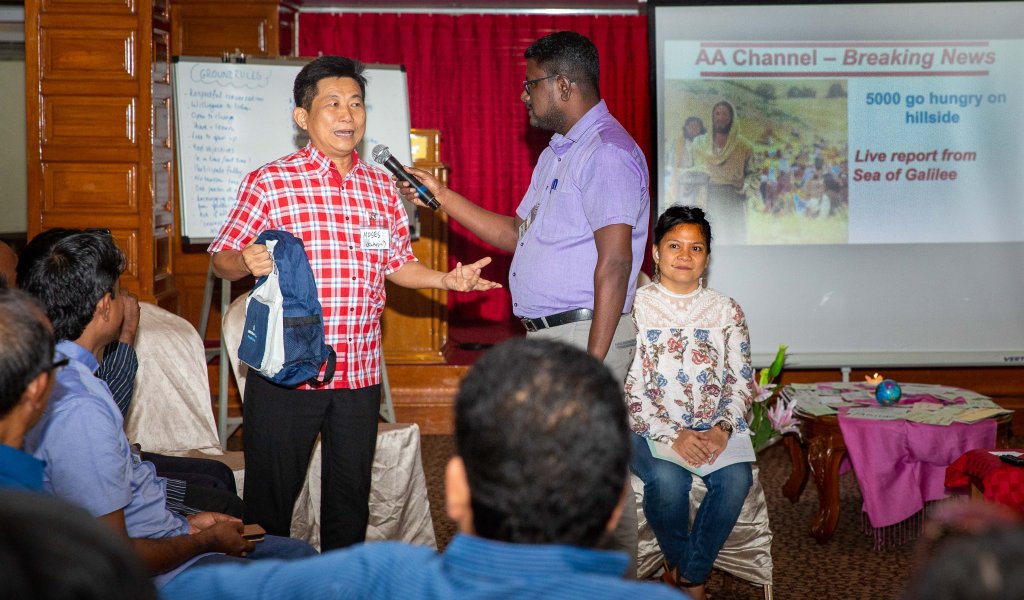
Exploring Bible stories in innovative ways

